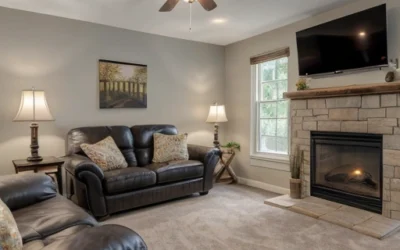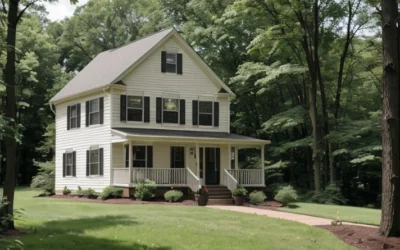$4M Funding Aims to Assist 500 Triad Residents with Energy-Efficiency Improvements
A considerable number of homeowners who struggle with high utility bills reside in homes that are poorly insulated, have outdated appliances, and are generally not energy efficient. Often, these homeowners are in the lower income bracket, and even with financial support from community organizations, or federal grants and tax rebates, implementing energy efficiency measures can be impractical.
Energy policy advocate at the N.C. Justice Center, Claire Williamson, describes this situation by stating that most home energy problems are, in fact, housing issues. According to her, in situations where a house has severe structural issues like a leaking roof, mold, or unstable floor joists, conducting energy efficiency work is not feasible.
However, Duke Energy’s innovative pilot program could change this predicament for hundreds of low-income households in Forsyth and Guilford counties. They are planning to provide millions of dollars in funding to make energy-inefficient homes more efficient. Charlotte city, along with Forsyth and Guilford – the two largest counties in the Triad – have been selected for this High Energy Usage Assistance program.
|
Ohio mortgage programs may be able to save you hundreds every month. A new 2024 mortgage may be able to give relief to homeowners. Unfortunately, most Americans will not receive their mortgage benefits because they are not aware of some of these programs. You do not need to pay anything to check how much you could get.
Check Ohio Programs Here |
Duke Energy has set aside $8 million to help approximately 1,000 out of an estimated 22,000 income-qualified residents in these three areas. The potential energy retrofit measures to be financed under this initiative include replacing HVAC systems, sealing air leaks, installing insulation and LED lights, and replacing old refrigerators with high-efficiency models.
This program was initiated by Duke Energy as per the direction of the N.C. Utilities Commission, with the aim of providing free energy-efficiency retrofits to lower-income residents who have high electricity consumption.
Nevertheless, around 40% of households that might be eligible for this program could be disqualified due to health and safety issues in the house, particularly damages to doors, windows, or roofs that need to be addressed beforehand, says the company. To tackle this, Ashley Pendley, Business Manager for Forsyth County Community and Economic Development, reveals that local governments will step in to provide additional funding assistance through their existing housing rehabilitation programming. This assistance will cover necessary home repairs before any energy-efficiency retrofits can be carried out.
Duke Energy plans to allocate $2 million each to Forsyth and Guilford counties, aiming to assist 250 residents in each county, while $4 million has been allocated to support 500 homes in Charlotte.
To be eligible for this program, residents must live in Forsyth or Guilford counties, or Charlotte, use at least 17,800 kilowatt-hours of electricity a year (as per Duke Energy bills), and have an income at or below 200% of the federal poverty level. If a home is selected, an “energy audit” of the building will be conducted by a Duke Energy contractor to identify the appropriate upgrades.
North Carolina State President for Duke Energy, Kendal Bowman, expressed optimism about the pilot program’s success and potential for expansion, stating that it may someday extend to help more customers save energy and money, thus promoting a cleaner energy future for all communities they serve.





